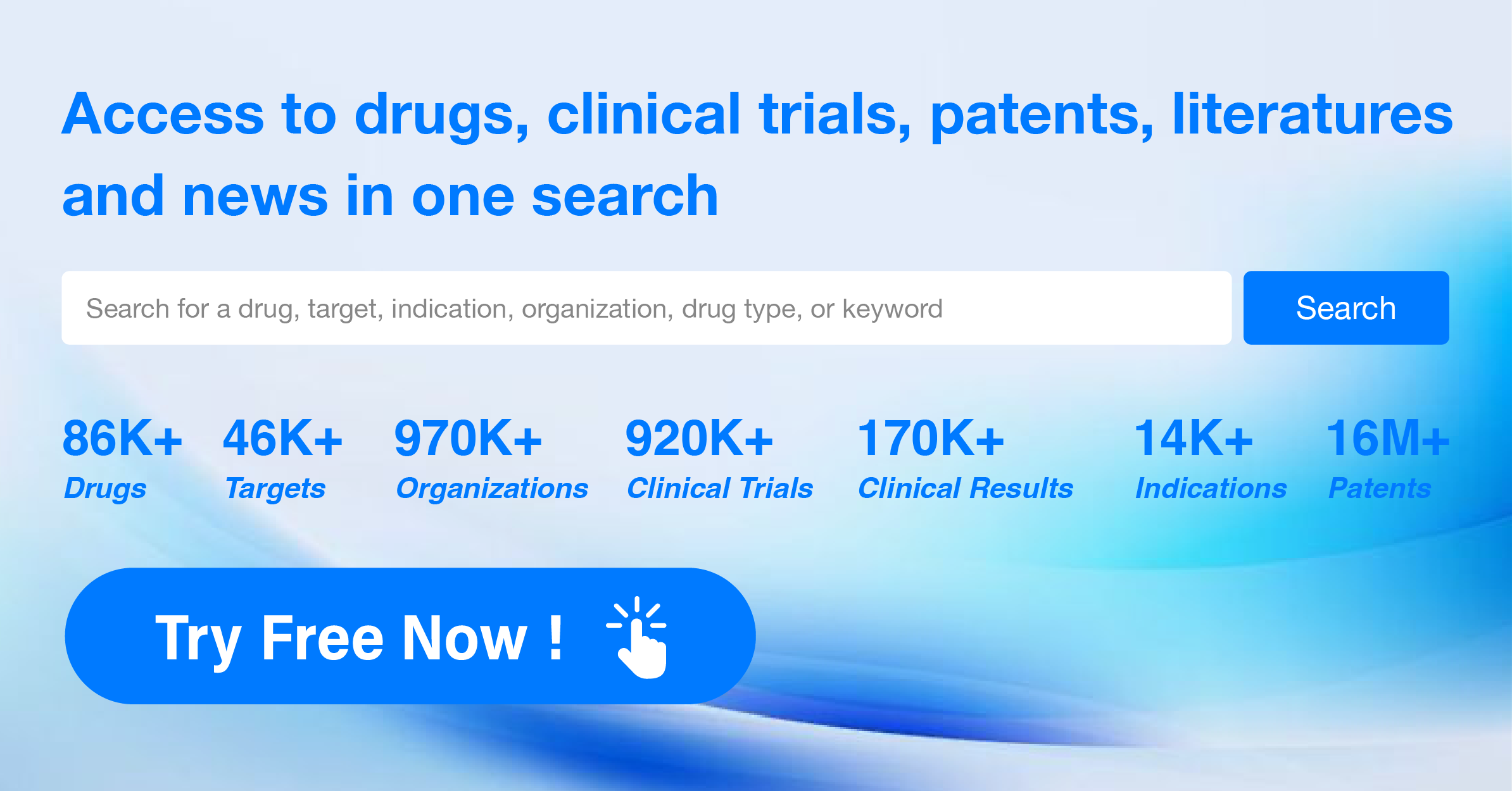Pharma Frontiers: Daily Digest of Global Pharmaceutical News - May 28
1.Boan Biotechnology's biosimilar of Denosumab for oncology approved for market release
On May 27, Boan Biotechnology announced that its self-developed Denosumab Injection (120mg) for oncology has been officially approved for market by the China National Medical Products Administration (NMPA). The product is intended for the treatment of giant cell tumor of bone that is unresectable or where surgical resection is likely to result in severe morbidity, for both adult patients and skeletally mature adolescents (defined as having at least one mature long bone and body weight ≥45 kg). Denosumab Injection (BA1102) is a biosimilar of Xgeva, with its active ingredient being a fully human monoclonal antibody of immunoglobulin G2 (IgG2) targeting RANK ligand.
BA1102, as a biosimilar of Denosumab, functions by binding to RANKL, thereby inhibiting the OPG/RANKL/RANK signaling pathway to suppress tumor growth and reduce bone resorption. According to the press release by Boan Biotechnology, BA1102 follows the relevant study guidelines for biosimilars. It passed through a series of progressively advancing studies, including pharmaceutical, non-clinical, human pharmacokinetic (PK), and clinical efficacy studies, confirming the overall similarity between BA1102 and the reference product. This includes high similarity in quality, safety, and efficacy, with no clinically meaningful differences. Two pivotal clinical studies comparing BA1102 to the reference product met all predefined endpoints.
PK, pharmacodynamic (PD), safety, tolerability, and immunogenicity comparative studies in healthy subjects demonstrated the bioequivalence of BA1102 to the reference product in terms of PK and PD. Studies in patients with bone metastases from solid tumors showed highly similar efficacy, safety, and immunogenicity between BA1102 and the reference product. It is reported that BA1102 was compared to the original Denosumab in two pivotal clinical studies conducted in China. Results from the phase 1 clinical study were published in the Journal of Bone Oncology, and the phase 3 clinical study results were presented in poster form at the 2023 annual meeting of the American Society of Clinical Oncology (ASCO).
2.Treatment of Excessive Daytime Sleepiness in Adolescents and Children: Pitolisant Gains Approval for a New Indication in China
On May 27th, the National Medical Products Administration (NMPA) of China announced on its official website that the new indication application for Pitolisant Hydrochloride Tablets, jointly submitted by Citrine Pharmaceutical and Bioprojet, has been approved. According to the public disclosure from the Center for Drug Evaluation (CDE) of the NMPA, Pitolisant is a selective histamine H3 receptor inverse agonist. The newly approved indication is for the treatment of excessive daytime sleepiness (EDS) or cataplexy in adolescents and children aged 6 years and above with narcolepsy. Narcolepsy is a rare neurological disorder often considered a lifelong condition, typically beginning in childhood (ages 8-10). Clinically, it is characterized by core symptoms such as EDS, cataplexy (sudden episodes of muscle weakness), hypnagogic hallucinations, sleep paralysis, and disrupted nighttime sleep. Narcolepsy significantly affects patients' ability to study or work and poses threats to their physical and mental health due to the risk of excessive sleepiness and cataplexy at any time.
Publicly available information indicates that Pitolisant is a selective histamine H3 receptor inverse agonist developed by Bioprojet. The drug operates through a novel mechanism that enhances histaminergic neuronal activity, increasing the synthesis and release of histamine, a neurotransmitter that promotes wakefulness, thereby improving patients' alertness and wakefulness. In October 2020, Citrine Pharmaceutical and Bioprojet entered into a strategic collaboration and exclusive licensing agreement, granting Citrine exclusive rights for the development, registration, commercialization, and production of Pitolisant in China. In June 2023, Pitolisant received approval in China for the treatment of excessive daytime sleepiness or cataplexy in adult patients with narcolepsy.
3.Simcere Zaiming Publishes Phase 3 Data for Endosta in the Treatment of Nasopharyngeal Carcinoma, Showing Nearly 85% 3-Year PFS Rate
On May 27th, Simcere Zaiming announced that a total of 16 of the company's research studies have been selected for inclusion in the ASCO Conference abstracts this year. Among these, the Phase 3 study of recombinant human endostatin, Endosta, for nasopharyngeal carcinoma (NPC) has been chosen for oral presentation at this year's conference. According to the data, adding Endosta to standard concurrent chemoradiotherapy (CCRT) significantly enhances survival benefits for patients with locally advanced nasopharyngeal carcinoma. The 3-year progression-free survival (PFS) rate for patients was 84.8% (vs. 75.1% in the control group).
For a long time, cisplatin-based concurrent chemoradiotherapy (CCRT) has been considered the standard treatment for patients with locally advanced nasopharyngeal carcinoma. However, many patients with locally advanced NPC have not achieved satisfactory outcomes. Endosta is an anti-angiogenesis inhibitor with good tolerability. This study is a prospective, randomized, controlled, multicenter Phase 3 clinical trial aimed at evaluating the efficacy and safety of adding Endosta to CCRT for patients with locally advanced nasopharyngeal carcinoma.
In this Phase 3 study, patients with locally advanced nasopharyngeal carcinoma (stages III-IVb) were enrolled across six centers in China and were randomly assigned to receive either Endosta in combination with CCRT or CCRT alone. Endosta was administered via continuous intravenous infusion over five cycles. The primary endpoint of the study was the PFS rate, with secondary endpoints including overall survival (OS), distant metastasis-free survival (DMFS), local-regional relapse-free survival (LRRFS), complete response (CR) rate at three months post-radiotherapy, and safety.The study concluded that adding Endosta to standard CCRT significantly improved the 3-year PFS rate for patients with locally advanced nasopharyngeal carcinoma, with a favorable safety profile.
4.Vision Biological's New EGFR Inhibitor WSD0922 Receives FDA Approval for Phase 2 Clinical Trials
On May 27, Vision Biological announced that the FDA has approved its new EGFR inhibitor WSD0922 to commence Phase 2 clinical trials in the United States. This trial is intended for patients with advanced/metastatic non-small cell lung cancer (NSCLC) that has progressed following first-line treatment with Osimertinib and harbors the C797S mutation. According to a press release from Vision Biological, WSD0922 is a fourth-generation EGFR/EGFRvIII-targeting inhibitor developed in-house, with potential to penetrate the blood-brain barrier. It is being developed for indications including central nervous system metastases of NSCLC and brain tumors. WSD0922 shows potential in overcoming various resistance mechanisms to first-line Osimertinib and may be effective in treating EGFRvIII-driven glioblastoma multiforme (GBM) and anaplastic astrocytoma (AA).
The approved study is an open-label, single-arm, international, multi-center Phase 2 clinical trial aimed at evaluating the efficacy and safety of WSD0922 in patients with advanced or metastatic NSCLC who have the EGFR C797S mutation and have experienced disease progression following first-line Osimertinib therapy. The trial will be conducted at approximately 20 clinical centers in China, the United States, France, and Canada.
Vision Biological is dedicated to the development of targeted therapies for brain tumors to address unmet clinical needs. In addition to WSD0922, the company is developing WSD0628, an ATM-targeting inhibitor capable of penetrating the blood-brain barrier, which is being investigated for combination therapy with radiotherapy for brain tumors. This candidate has received FDA clearance to conduct Phase 1 and Phase 2a clinical trials in the United States, and has garnered support from the NCI U19 and the FDA Orphan Drug Development (ODD) R01 grants.Furthermore, the company has several strategic development pipelines. For instance, WSD1227 is being developed as either a monotherapy or combination therapy for brain tumors and is currently in the preclinical IND preparation stage.
5.CAR-T Therapy Shows Promising Clinical Results, Achieving 100% Remission in Patients!
On May 27, iCell Gene Therapeutics announced the positive results from the investigator-initiated clinical trial (IIT) of its BCMA and CD19 targeted combination chimeric antigen receptor-T (BCMA-CD19 cCAR-T) cell immunotherapy. The analysis revealed that all systemic lupus erythematosus (SLE)/lupus nephritis (LN) patients who received the full initial dose of cCAR-T therapy tested negative for autoantibodies three months post-treatment. At a 46-month follow-up, all patients achieved medication-free remission (MFR) and remained asymptomatic. These findings were concurrently published in the journal Annals of the Rheumatic Diseases. Based on these positive results, iCell plans to conduct further clinical trials of this therapy in the United States and China.
Systemic lupus erythematosus is a potentially life-threatening autoimmune disease with a global incidence of approximately 0.1%, predominantly affecting young women. SLE is primarily characterized by the abnormal activation of the adaptive immune system, leading to the production of copious autoantibodies, which cause acute and chronic inflammation and functional damage to multiple organs, such as the kidneys, heart, lungs, and skin. Most SLE patients require lifelong treatment. LN is one of the most severe complications of SLE. Lupus nephritis encompasses a range of vascular, glomerular, and tubulointerstitial lesions, typically developing within 10 years after SLE diagnosis. LN is associated with several renal disease risks, including end-stage renal disease requiring dialysis or kidney transplantation, and renal disease-related mortality. The standard approach to controlling LN involves induction therapy to achieve remission, followed by long-term maintenance treatment to prevent relapse. Currently, there is no approved therapy that can help SLE/LN patients with high risk of long-term organ damage and kidney transplantation achieve medication-free remission.This trial was a single-group, open-label, multi-center Phase 1 study designed to evaluate the efficacy and safety of iCell’s BCMA-CD19 cCAR-T therapy in SLE/LN patients, whose autoantibodies are produced by B cells and plasma/long-lived plasma cells.
6.Reduce Pathogenic Proteins by 90%! Accuredit Announces Latest Clinical Data for Gene Therapy
On May 27th, Accuredit announced that the latest 24-week clinical study data for its in vivo gene-editing drug, ART001, will be presented at the upcoming International Biotechnology Conference. ART001 is an in vivo gene-editing drug that utilizes a non-viral vector. This conference will reveal 24-week clinical safety and efficacy observations of the product in treating patients with transthyretin amyloidosis (ATTR). ATTR is a fatal disease caused by the instability of transthyretin (TTR) tetramers, leading to the misfolding of its monomers and the formation of amyloid deposits. These amyloid fibers progressively deposit in multiple tissues and organs, especially the heart and nervous system, severely impacting patients' quality of life, with currently limited effective treatments available.
Founded in July 2021, Accuredit focuses on the development and commercialization of non-viral vector gene-editing technologies and products. ART001 injection, independently developed by Accuredit, uses lipid nanoparticles (LNP) as a delivery vector to transport gene-editing components targeting the TTR gene to the liver. This process safely and specifically edits the TTR gene, preventing the expression of TTR protein, thereby avoiding abnormal amyloid deposition. Mechanistically, gene-editing drugs have the potential to halt or even reverse disease progression with just a single lifetime dosage. Furthermore, as a non-viral vector gene-editing therapy, ART001 does not require the use of viruses or cells, potentially significantly reducing treatment costs.Currently, the clinical trial application for ART001 has been accepted by China's NMPA, and an application to the US FDA is forthcoming.
7.Johnson & Johnson's Potential FIC Radioligand Therapy Phase I Study Reports Four Patient Deaths
Recently, Johnson & Johnson unveiled the Phase I study data at the ASCO conference for its potential first-in-class radioligand therapy, JNJ-69086420, for metastatic castration-resistant prostate cancer (mCRPC). This study focuses on heavily pre-treated mCRPC patients who have received ≥1 androgen receptor pathway inhibitor treatment and were not selected based on biomarkers. JNJ-6420 is the first radioligand therapy targeting hK2, designed to deliver high-energy short-range alpha particles, 225Ac, to prostate cancer cells. hK2, encoded by the KLK2 gene, is a novel target expressed on prostate cancer cell surfaces, with limited expression in other tissues. As of January 5, 2024, 67 patients had received ≥1 treatment with JNJ-6420. The therapeutic outcomes for 57 patients in the ≥150μCi JNJ-6420 cohort were summarized. During interim analysis, 3 patients (12.5%) achieved a confirmed objective response, including one complete response. At six months, the disease control rate was 28.1%. In terms of safety, 35 patients (61.4%) experienced grade 3 or higher treatment-emergent adverse events (TEAEs), and 21 patients (36.8%) experienced serious TEAEs. Notable TEAEs included thrombocytopenia (63.2%) and interstitial lung disease (ILD, 9%), both associated with repeat dosing. Nine patients (15.8%) discontinued treatment due to TRAEs, and four patients died as a result of TRAEs.
8.Cornerstone Pharmaceuticals Reaches Agreement on Anti-PD-L1 Monoclonal Antibody with an Over $50 Million Down Payment
On May 27th, Cornerstone Pharmaceuticals announced a commercialization partnership with European pharmaceutical company Ewopharma, granting them the commercialization rights for Sugemalimab in Central and Eastern Europe (CEE). According to the licensing and commercialization agreement, Ewopharma will obtain the rights to commercialize Sugemalimab in Switzerland and 18 other CEE countries. Cornerstone Pharmaceuticals will receive an upfront payment of up to $51.3 million, along with further milestone payments for registration and sales.
Sugemalimab, an anti-PD-L1 monoclonal antibody developed by Cornerstone Pharmaceuticals, has entered the registration clinical phase and received approval in China for five indications, including stage III and IV non-small cell lung cancer (NSCLC), extranodal NK/T-cell lymphoma, esophageal squamous cell carcinoma, and gastric cancer. Additionally, both the European Medicines Agency (EMA) and the UK's Medicines and Healthcare Products Regulatory Agency (MHRA) have accepted the marketing authorization application for Sugemalimab in combination with chemotherapy for the first-line treatment of metastatic NSCLC. These applications are currently under review.
In the European market, the marketing authorization application for Sugemalimab is also expected to be approved by the EMA soon. Ewopharma, a professional pharmaceutical marketing company with extensive experience and a broad network in the CEE market, is well-positioned to maximize the clinical and commercial value of Sugemalimab in Europe. This partnership will undoubtedly help more patients benefit from this innovative drug.




